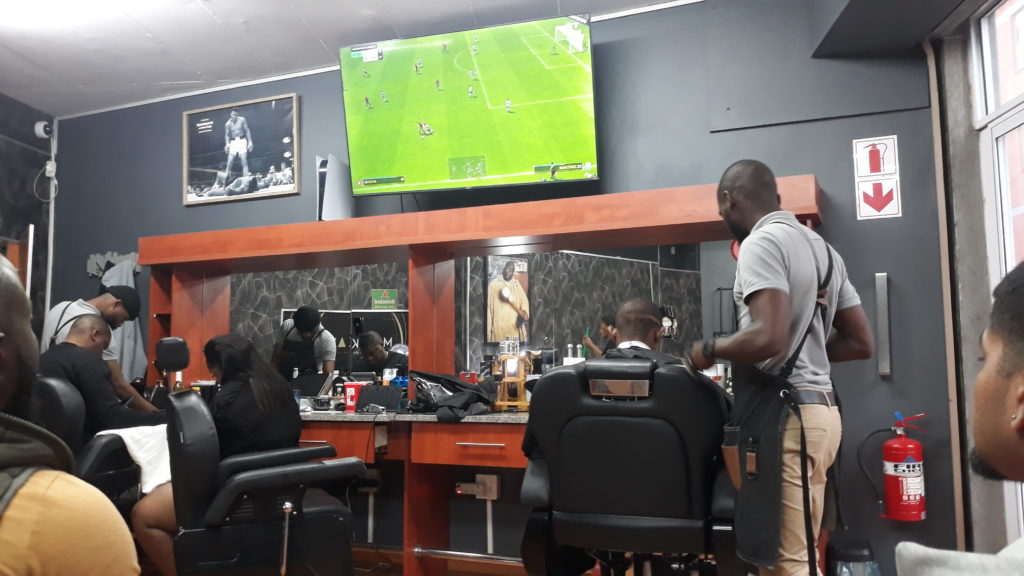By Lwandile Hlekwayo
In recognition of June as Men’s Mental Health Month, a Durban barbershop has taken a unique approach to raising awareness of men’s mental health by hosting an electronic sports (e-sports) tournament at the facility.
The initiative is aimed to eliminate the stigma surrounding men’s mental health and promote an open dialogue among men.
The organisers said they were inspired by their clients and wanted to create a safe space for them to speak out about their mental challenges.
Siya Bhengu, the manager at Mankave Barbershop, said: “We have a close bond with our clients, each haircut is like a therapy session where our clients get to relax and be themselves.
“We (have) created the tournament with the idea that we want our clients to interact with one another and, in the process, get a chance to discuss the mental health issues that they are facing as men in society while playing their favourite game,” he said.
During the tournament, men expressed their feelings of stigma surrounding their mental health. They said such platforms might be a game changer.
Kusaselihle Ndlovu, a client and participant in the tournament, said: “This is a great initiative taken by Mankave. (It creates) space for men to talk about mental health in a relatable way through playing games we love.”
He said it is not easy for men to express themselves because of their socialisation. “We are taught to be strong and stoic. This makes it hard to open up about our feelings. When we show our emotions, we’re seen as weak,” he said.
The South African Depression and Anxiety Group (SADAG) says the stigma around mental health is one of the barriers that hinder men from seeking health.
Christopher Kemp, a clinical psychologist from the SADAG, said because of the way society thinks about masculinity, men frequently shy away from appearing vulnerable publicly.
“South Africa has quite conservative values, especially in African and Afrikaner communities. I see a lot of men from those sorts of environments who very much feel like emotions are seen as a weakness and something that should easily be in your control, so men are very much encouraged to mask and suppress their emotions, and I do think it is something we struggle with within the South African context,” he said.
Kemp added that it is when people suppress their emotions to conform to the norms of society.
“Suppressed emotion can lead to anger issues, depression and high suicide rates in men. Drug and alcohol use is linked to depression, and not (voicing) your feelings can be very harmful, especially having to pretend to be okay all the time and also having the pressure to be okay can be very taxing, especially when you are struggling.”
Kemp said the stigma surrounding mental health can come from family members, friends and lovers, which makes men hesitate to speak out.
“A lot of men have had negative experiences from showing emotions. They’ve had fathers and dominant figures in their lives chastise and humiliate them for showing emotion. A recurring theme here is how the very same men who are leaders of society and heads of their households perpetuate the same behaviour that was most likely exercised on them when they were younger. This keeps the vicious cycle alive.”
SADAG offers assistance, and men are encouraged to use it if they are worried about being judged by others.


